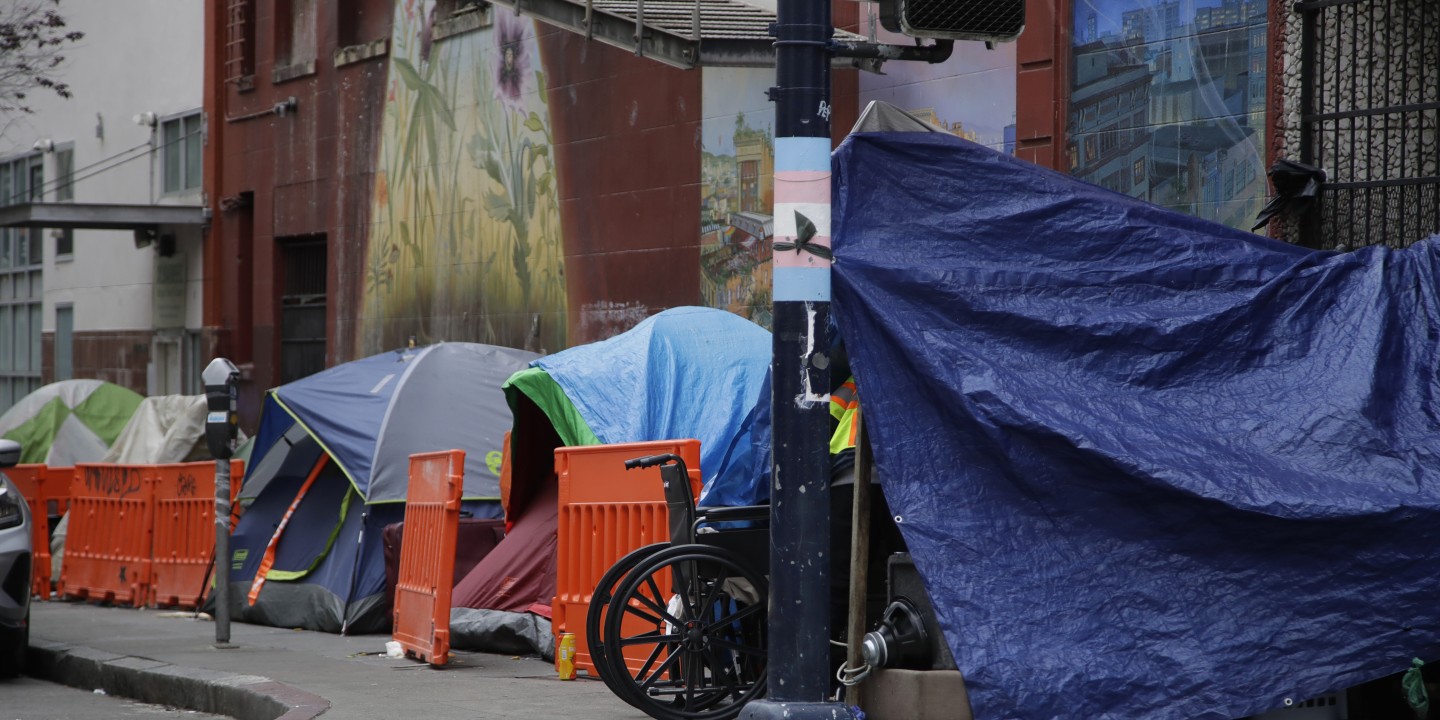California, New York provide hotel rooms to people who are homeless and released from jail

Two hotels near the airport in Oakland, California, are receiving unusual guests now that coronavirus has eviscerated tourism: people who are homeless after being released from jail.
It’s part of an experiment to provide government-paid hotel rooms to people who are homeless, including those released from jail under emergency orders, in an effort to limit the spread of the virus both behind bars and in this state’s sprawling homeless encampments. California and New York appear to be the first states trying it.
“We are doing things that we’ve never done before,” said Sgt. Ray Kelly, the sheriff’s spokesman in Alameda County, which includes Oakland. “The reason for the decision is to save lives—there’s no doubt about that. We’re up against a clock.”
Read our latest issue or browse back issues.
The pandemic has prompted law enforcement officials throughout the country to make difficult decisions to try to prevent outbreaks in crowded jails, where people often cycle in and out as they wait for trial or serve short stints. Some agencies have released thousands of people early. But when people leave jails, where do they go?
It’s a thorny question in the best of times, and cities are trying to find answers. In New York City, the Department of Homeless Services offered rooms to people who are homeless and released from Rikers Island, the city’s jail. But perhaps nowhere is the housing need as pressing as in California, where the pandemic overlaps with a historic homelessness crisis.
Makeshift tent encampments line highways, railroad tracks, and parks. There are an estimated 150,000 homeless Californians, driven to the streets by soaring home prices—the median price has surpassed $570,000—a housing shortage, and lack of access to mental health care. It’s become the top concern for state voters, and Gov. Gavin Newsom devoted his recent State of the State address to the problem, calling it a “disgrace.”
With COVID-19 cases rising, Newsom signed an executive order in March that included $50 million to lease hotel rooms or buy travel trailers for people who are homeless, including those released from jails. Phil Ting, a San Francisco Democrat and chair of the California Assembly Budget Committee, said lawmakers allowed flexibility for local governments to house particularly vulnerable people, like prisoners who are homeless.
“If someone in a homeless encampment got sick because of coronavirus, the whole encampment could be infected,” Ting said.
Oakland is among the first localities in California to get a hotel lease, according to the governor’s office. State officials and advocates for the homeless are hopeful as they watch Oakland’s experiment.
“Being placed in a motel room means having your own living space, your own shower, your own bed, and it allows you to self-isolate,” said Eve Garrow, a homelessness policy analyst and advocate for the ACLU of Southern California. “Honestly, I feel that it will save lives.”
“Hotels are clearly an ideal situation right now,” said Randall Kuhn, an associate professor at UCLA’s Fielding School of Public Health and coauthor of a recent study that estimated COVID-19 could hospitalize 2,600 homeless people in Los Angeles and result in about 400 deaths. He said Bay Area counties were “really setting an example for the rest of the country.”
Oakland’s agreement allows the government to lease 393 rooms in two hotels near the airport. Since the coronavirus began appearing in the Bay Area, the Alameda County Sheriff’s Office has released hundreds of people from Santa Rita Jail, one of the state’s largest lockups. Many of the inmates simply return to their homes, but those without shelter can be considered for a hotel room.
The hotels, a Comfort Inn and Suites and the Radisson Hotel at the Oakland Airport, began taking people under the new contracts on March 25. The hotels are both located away from residential areas, near a busy highway. On a recent afternoon, guards wearing face masks stood at the entrances.
Hotel employees referred questions to the K & K Hotel Group, which is listed on the leases. No one there responded to phone and email inquiries.
County officials did not release a count of how many people are in the hotels or how many among them were released from jail.
Other counties throughout the state have also started lease negotiations, including San Diego and San Francisco, where county supervisors unanimously approved a resolution that included housing for people who had been in jail.
San Francisco’s public defender, Mano Raju, estimated 20 to 30 percent of the local jail population did not have anywhere to live.
Kelly, of the Alameda County Sheriff’s Office, said he hopes his county’s plan can serve as a blueprint for places throughout the country as they wrestle with how to safely release people from jails. He said that crime is down and that no jail detainees have yet tested positive for the virus.
“People should be looking to California,” he said. “We have a week ahead of a lot of other jurisdictions. They don’t need to reinvent the wheel on this.” —The Marshall Project
This story is part of the SoJo Exchange of COVID-19 stories from the Solutions Journalism Network, a nonprofit organization dedicated to rigorous reporting about responses to social problems.






